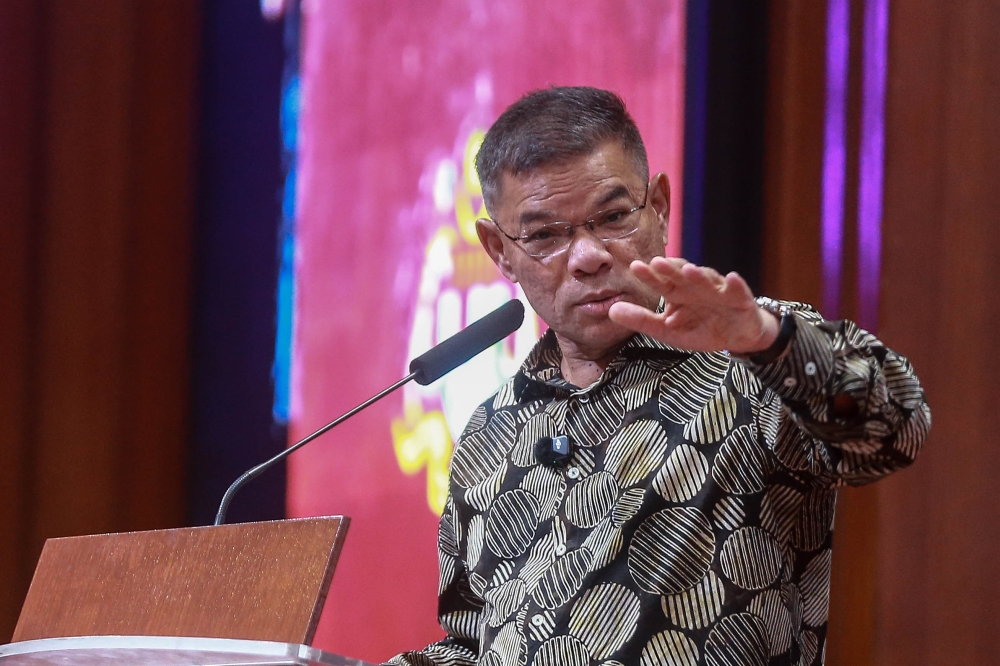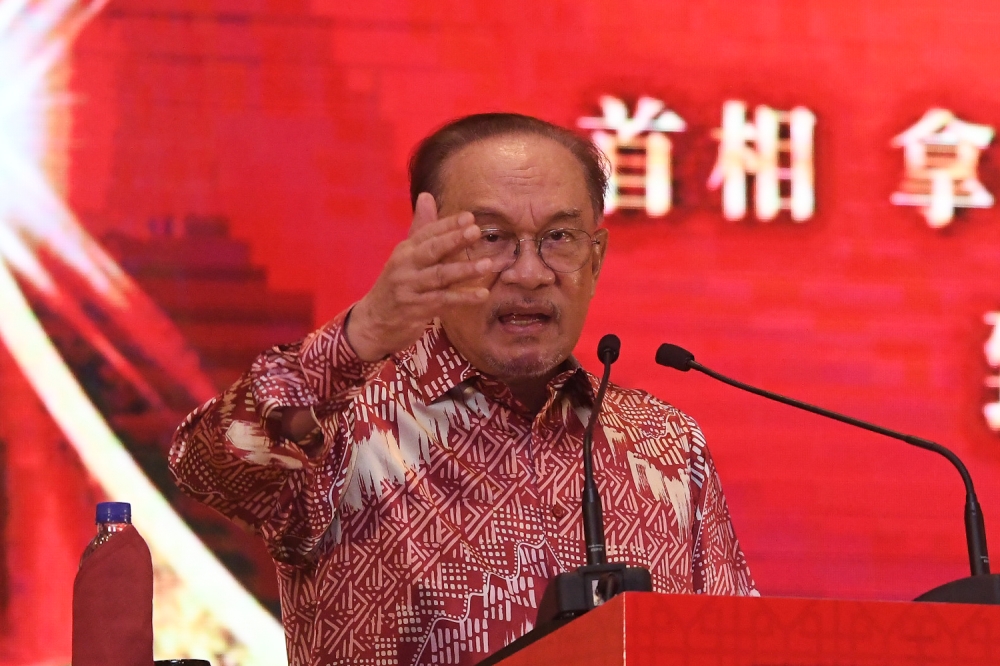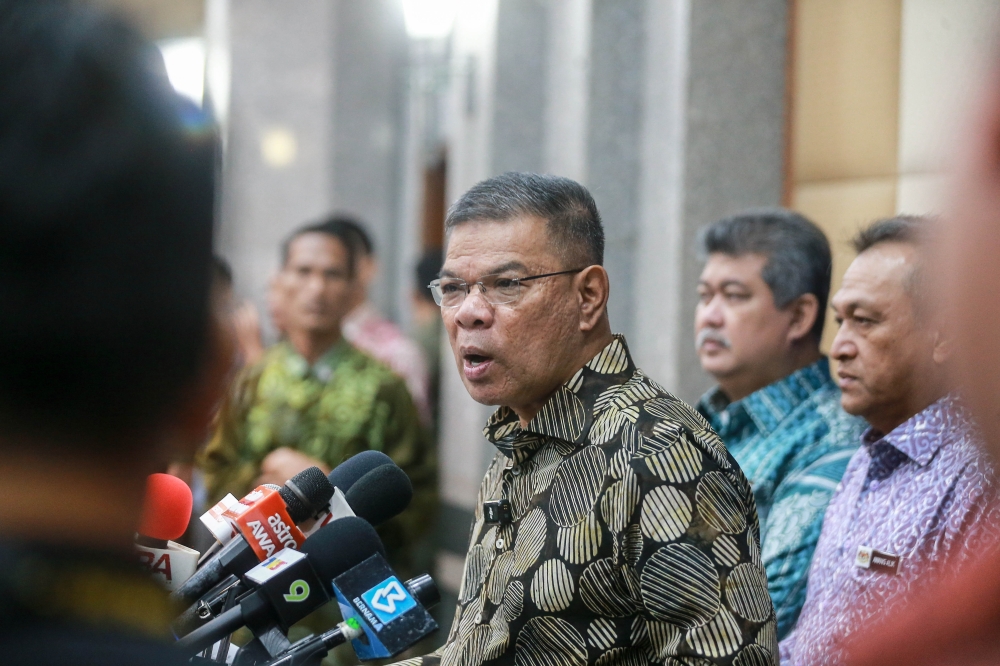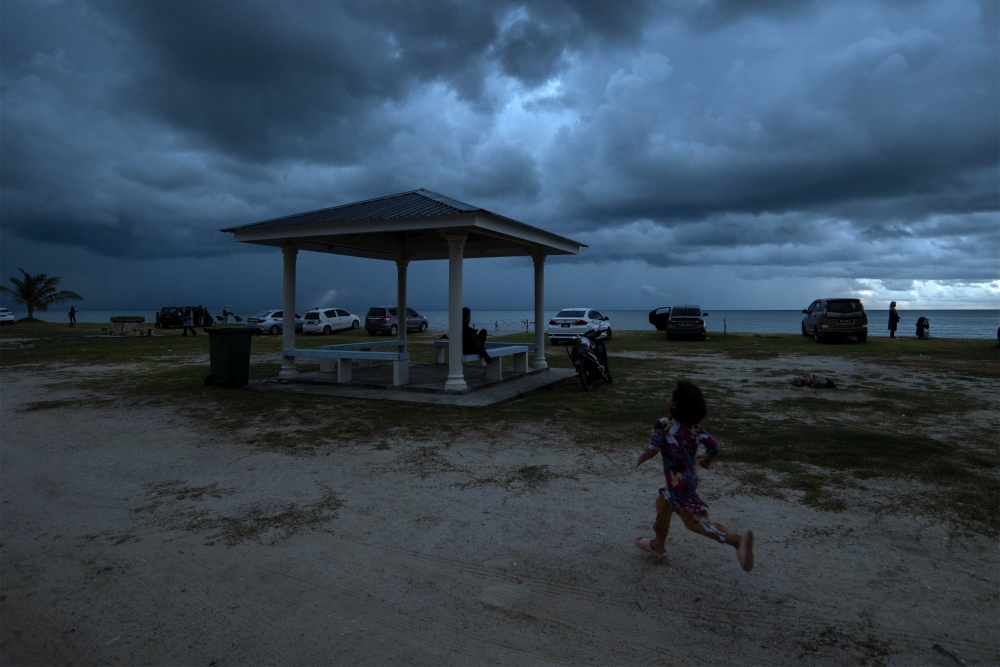KUALA LUMPUR, Feb 1 — The Federal Court ruling in M. Indira Gandhi’s case has been hailed as a landmark decision that reaffirms the civil courts’ constitutional role and powers, and clears up the confusion by declaring that unilateral conversions of children to Islam are unlawful.
Here is a simplified and paraphrased version of Federal Court judge Tan Sri Zainun Ali's full 100-page judgment that was sighted by the Malay Mail:
The facts:
Muslim convert Muhammad Riduan Abdullah converted the three children from his civil marriage with Perak-based Hindu mother M. Indira Gandhi to Islam without their knowledge or consent in 2009, before he went to the Shariah courts to obtain custody over them.
Indira successfully challenged the unilateral conversion in the High Court, but the Court of Appeal ruled against her.
The parties
In the three appeals by Indira heard together by the Federal Court, those named as respondents were:
the Perak Islamic Religious Affairs Department director, Registrar of Muallafs (converts) and Perak government;
the Education Ministry and the Government of Malaysia; and K. Pathmanathan (now Muhammad Riduan).
What the lawsuit is NOT about:
Indira is not questioning the conversion itself, but the process and legality of the conversion / whether the Registrar of Muallafs complied with Perak state laws when registering and issuing certificates of conversion to her children.
Indira's lawsuit is not about the status of her children as Muslim converts, but the legality and constitutionality of the Registrar of Muallafs’ administrative action in the exercise of his powers.
Indira's lawsuit is not about questions of Islamic law and practice, and does not involve the interpretation of any Islamic personal laws or principles.
(In other words, this is not about religion, but about whether procedures and legal requirements to change the religion of Indira's children were followed).
What the lawsuit is about:
The Federal Court examined these three questions of law:
1. Whether the civil courts have exclusive jurisdiction and inherent jurisdiction to review the actions of a public authority (e.g. Registrar of Muallafs)?
Short answer: Yes.
(Because the civil courts’ powers to review a public authority’s actions is a basic part of the Federal Constitution that cannot be altered or removed. The Shariah courts do not have the same power and cannot be given such power as the constitutional safeguards for judiciary independence do not apply to them).
About the civil courts
The Federal Constitution's basic structure includes judicial powers such as judicial review, the principles of separation of powers, rule of law, protection of minorities. Parliament cannot remove such features by amending the Constitution.
The Federal Constitution’s Article 121(1) vests judicial power exclusively in the civil courts.
Judicial powers — including judicial review or the review of public authorities’ actions and decisions — cannot be removed from the civil courts, and cannot be given to any other body who do not have the same level of constitutional protection as civil judges to safeguard their independence.
About the Shariah courts
Unlike the civil courts that are established by and entrenched in the Federal Constitution, Shariah courts only come into existence when the state legislatures make state laws to establish them.
Unlike the civil courts, the constitutional safeguards for judicial independence in Part IX of the Federal Constitution -- including judges' qualifications, appointment, removal, security of tenure and remuneration -- do not apply to Shariah courts.
"It is evident from the marked differences in the establishment and constitution of the civil and Syariah courts that the two courts operate on a different footing altogether." The perception that both civil courts and Shariah courts should have a policy of mutual non-interference may be misconceived and based on an erroneous understanding of Malaysia's constitutional framework.
Shariah courts' jurisdiction are limited:
i) Shariah courts may not exercise the civil courts' inherent judicial powers, including the power of judicial review. Shariah courts are not given the power to review administrative decisions of public authorities.
ii) to Muslims and Islamic laws, personal and family laws for Muslims. (Only for private law and not constitutional law)
Indira, as a non-Muslim, has no legal standing to appear before the Shariah courts and the Shariah courts have no jurisdiction over non-Muslims. The Shariah courts do “not have the power to expand its own jurisdiction to choose to hear” Indira’s case.
iii) to matters expressly provided for by state laws
The Administration of the Religion of Islam (Perak) Enactment's Section 50(3)(b)(x) only gives jurisdiction to the Shariah courts to issue a declaration that a person is no longer a Muslim (relevant for cases where a person renounces Islam), but does not give jurisdiction to determine the validity of a person's conversion to Islam. Indira's case involves the latter.
If the conversion is invalid, the person was never a Muslim and the issue of no longer being a Muslim does not arise.
About the Federal Constitution’s Article 121(1A)
Article 121(1A) says civil courts shall have no jurisdiction in respect of any matter within the jurisdiction of the Shariah courts
The core question: Does Article 121(1A) grant exclusive jurisdiction to Shariah court in all matters of Islamic law, including those relating to judicial review?
Short answer: No.
Article 121(1A) does not remove the civil courts’ jurisdiction to interpret the Constitution or laws even when the matter is related to Islamic law.
Unduly simplistic to say Shariah courts must have sole jurisdiction over matters of conversion (as it involves Islamic law and practice). No constitutional amendment, federal law or state law can remove the civil courts' powers of judicial review, interpretation of Constitution and laws; or give them to Shariah courts.

2. Whether a child from a non-Muslim marriage must comply with legal requirements in state laws before the Registrar of Muallafs can register the conversion to Islam.
(In Indira's case, the relevant state law is Religion of Islam (Perak) Enactment 2004, particularly Section 96(1) which requires the person converting to say in Arabic the two clauses of the Affirmation of Faith out of their own free will and with understanding of the meaning "for a valid conversion" to Islam; and Section 106(b) which says a child may convert if he is of sound mind and his parent or guardian consents in writing).
Short answer: Yes.
Facts: Indira's children were not present before the Registrar and did not utter the Affirmation of Faith as required under the Perak state law. (At the time of conversion, the children were aged 11, 10 and over 11 months old).
Since the legal requirements under Sections 96 and 106(b) were not fulfilled and not complied with, the Registrar had no jurisdiction to issue the certificates of conversion for Indira's children. He had acted beyond his powers.
Islamic principles require a Muslim convert to consult their non-Muslim spouse before changing their children's religion, and for both parents to have the right to be heard by a single competent authority. The Muslim convert should allow the children and non-converting spouse to be drawn to Islam without coercion.
3. Whether the mother and father (if both are still surviving) must consent before a certificate of conversion to Islam can be issued for a child from their civil marriage?
Short answer: Yes. Consent of both parents for conversion is needed.
The certificates of conversion of Indira's children to Islam are invalid because they were issued without Indira's consent, which violated the Federal Constitution's Article 12(4) and Guardianship of Infants Act.
Why:
For the Federal Constitution's Article 12(4) which says a 'parent or guardian' shall decide the religion of a person under the age of 18 for matters such as religious instruction, the English version of 'parent' prevails over the Bahasa Malaysia translation of 'ibu atau bapa' (mother or father). English version is authoritative since it is not shown that the Yang di-Pertuan Agong has prescribed BM translation to be authoritative, as may be done under the Constitution's Article 160B.
The Federal Constitution's Eleventh Schedule says words in the singular (e.g. parent) should be interpreted to include the plural (e.g. parents), and vice versa. It is fairly clear that "parent" includes "parents". BM version is a case of being "lost in translation"; "parent" is intended to cover single-parent situation and should be read as "parents" if both are still alive.
Consent must be from both parents for best interests of the child, who will be subject to new and different set of personal laws when the religion is changed.
Guardianship of Infants Act's (GIA) Section 5 provides for equal rights of both parents in the custody and upbringing of their children, while Section 11 requires the courts to consider the wishes of both parents.
On whether GIA provisions (which do not apply to Muslims unless adopted by state laws) apply to Indira's case because Muhammad Riduan is now a Muslim, his conversion to Islam does not change the legal position before his conversion and the provisions still apply to their children from their Hindu marriage.
This is in parallel to the situation where a person in a civil marriage under the Law Reform (Marriage and Divorce) Act remains bound to legal obligations under this Act even after converting to Islam. A past court decision said legal obligations under a non-Muslim marriage cannot be extinguished or avoided by a spouse's conversion to Islam.
The four other judges on the Federal Court's five-man panel who agreed with Zainun's judgment: Court of Appeal president Tan Sri Zulkefli Ahmad Makinudin, Chief Judge of Sabah and Sarawak Tan Sri Richard Malanjum, Federal Court judges Tan Sri Abu Samah Nordin and Tan Sri Ramly Ali.




















